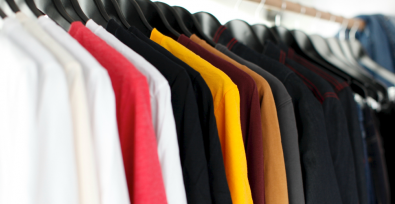An alarming new report reveals that cotton linked to forced labor in China’s Uyghur Region continues to find its way into products sold by U.S. and global retailers, with a significant portion disguised within blended fibers labeled as American or Brazilian in origin. Despite the ban imposed by the Uyghur Forced Labor Prevention Act (UFLPA), approximately 19 percent of over 820 cotton-containing samples tested positive for Uyghur Region cotton, posing a significant challenge to supply chain integrity.
A “5 alarm fire situation”
MeiLin Wan, vice president of textile sales at Applied DNA Sciences, which conducted the study alongside Stratum Reservoir, highlighted the significance of this finding only made possible using isotopic testing, akin to fingerprint comparison.
Yahoo! News reports,
Wan said that the companies decided to keep the identities of the offending brands under wraps, partly for legal reasons (“we obviously don’t want to be sued”) and partly because they wanted to be “helpful” rather than name and shame. She did note, however, that at least one-quarter of the samples would have entered the United States under the so-called de minimis “loophole,” which frees small packages valued at less than $800 from paying taxes, fees or tariffs and—crucially—subjects them to less scrutiny even though they’re not exempt from the UFLPA. A whopping 685 million of these packages inundated the country in 2022 alone, according to CBP.
Kimberly Glas, president and CEO of the National Council of Textile Organizations, advocates for closing the de minimis loophole and believes this latest finding is a “5 alarm fire situation.”
“This underscores the alarm that the industry has been raising for months about the infiltration of Xinjiang cotton into the United States. It’s literally it sitting in our closet being delivered to our doorsteps and UFLPA enforcement has been anemic.”
Cotton Laundering
Wan was shocked at the findings that 57 percent of the samples testing positive for Uyghur Region origins were labeled as U.S. cotton. The study, which also found 12 percent of the samples claimed to be from Brazil, 11 percent from other Chinese provinces, and 9 percent from Australia, underscores the complexities of global cotton sourcing. With China importing nearly half of its cotton from Brazil and the United States, Wan noted that unintentional blending with domestic cotton is inevitable, complicating efforts to ensure supply chain integrity.
“Just imagine a bucket of paint, right? It starts off as blue. And as you start to add green, yellow, red, brown [and] purple, [it’s hard to] figure out what origin it has because you’ve got so many. That’s why recycled cotton is not easy to verify because they’re blending it and taking the fibers from God knows where. So truly unknown origins.”
Obscuring cotton sourcing by mixing cotton from other locations makes it difficult to enforce bans on products from specific regions. At the heart of the issue lies the challenge of supply chain transparency and accountability.
The Freedom United community and over 280 organizations, led front and center by survivors and families of current detainees, are advocating for companies to cut ties with the Uyghur forced labor system.
Add your voice to the movement by signing the petition today!







Freedom United is interested in hearing from our community and welcomes relevant, informed comments, advice, and insights that advance the conversation around our campaigns and advocacy. We value inclusivity and respect within our community. To be approved, your comments should be civil.